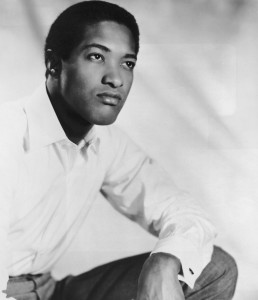
Bob Marley’s Reggae Landmark
In 1973, a reggae group on the verge of breaking up released an album — its second that year — filled with militant anthems inspired by life in the Jamaican […]
 play_arrow
play_arrow
 play_arrow
play_arrow
 play_arrow
play_arrow
The Sounds of America: Flaco Jiménez’s Partners album BMPAudio
 play_arrow
play_arrow
The Sounds of America: The Harder They Come Soundtrack BMPAudio
 play_arrow
play_arrow
 play_arrow
play_arrow
 play_arrow
play_arrow
 play_arrow
play_arrow
 play_arrow
play_arrow
 play_arrow
play_arrow
Science Of Happiness 76: If You Want to Be More Productive, Cut Yourself Some Slack BMPAudio
 play_arrow
play_arrow
 play_arrow
play_arrow
 play_arrow
play_arrow
Science of Happiness 73: How to Switch Off Your Critics BMPAudio
 play_arrow
play_arrow
 play_arrow
play_arrow
Science of Happiness 72: How To Reconnect With Your Partner BMPAudio
 play_arrow
play_arrow
The Science of Happiness 71: Do You Want To Be More Patient? BMPAudio
 play_arrow
play_arrow
Red, White and the Blues BMPAudio
 play_arrow
play_arrow
The Science Of Happiness 70: How To Love People You Don’t Like BMPAudio
 play_arrow
play_arrow
The Science of Happiness 69: What’s Your “Why” In Life? BMPAudio
 play_arrow
play_arrow
The Science of Happiness 68: From Othering to Belonging BMPAudio
 play_arrow
play_arrow
The Science of Happiness 67: Taking Small Steps toward Big Goals BMPAudio
 play_arrow
play_arrow
1A Memorial Day Special BMPAudio
 play_arrow
play_arrow
The Science of Happiness 66: How to Connect When You Must Stay Apart BMPAudio
 play_arrow
play_arrow
 play_arrow
play_arrow
 play_arrow
play_arrow
The Science of Happiness 64: Helping Kids Think About the Good BMPAudio
 play_arrow
play_arrow
 play_arrow
play_arrow
The Science of Happiness 63: Remembering to Breathe BMPAudio
 play_arrow
play_arrow
 play_arrow
play_arrow
The Sounds of America: “Hello Muddah, Hello Fadduh” BMPAudio

 play_arrow
play_arrow
Sam Cooke’s Swan Song of Protest BMPAudio
 Though only a modest hit by his standards, Sam Cooke’s “A Change Is Gonna Come” became an anthem of the 1960s civil rights movement, and would come to be heralded as his magnum opus.
Though only a modest hit by his standards, Sam Cooke’s “A Change Is Gonna Come” became an anthem of the 1960s civil rights movement, and would come to be heralded as his magnum opus.
Released as a single around the time of Cooke’s death in December 1964, the song became a sensation within the black community.
One of the pioneers of soul music, Cooke began his career in music as a gospel singer. His brother, L.C. Cooke, recalls that Sam always had his heart set on becoming a professional musician.
“He said, ‘I’m preparing myself, ’cause like I told you, I’m going to be a singer — I’m never gonna have a 9 to 5 job,'” L.C. Cooke said. “And believe me, he never had one.”
In 1963, having already scored many hits in the secular pop marketplace, Sam Cooke first heard Bob Dylan’s “Blowin’ in the Wind.” Amid the civil rights movement, Cooke was inspired to create his own protest song, according to Peter Guralnick, Cooke’s biographer.
As a black singer from the South, racial segregation affected Cooke personally. In October 1963, he was arrested and thrown in jail after refusing to be turned away from a Shreveport, La., hotel which had initially accepted his reservation. In December 1963, Cooke recorded “A Change Is Gonna Come.”
Though Cooke didn’t live to see its success and reception, “A Change Is Gonna Come” cemented his reputation as a soul-music legend. The song was covered hundreds of times, including by Aretha Franklin.
“He was one of the greatest male singers of all time,” Franklin says. “You put him in the category with Caruso and Pavarotti and these other great names. Sam Cooke, bar none, was one of the greatest singers of all time.”
Independent producer Ben Manilla spoke with Franklin, Guralnick and L.C. Cooke about Sam Cooke’s masterpiece, added earlier this year to the National Recording Registry of the Library of Congress.
Tagged as: Aretha Franklin, L.C. Cooke, Peter Guralnick, Sam Cooke.

BMPAudio November 20, 2007
In 1973, a reggae group on the verge of breaking up released an album — its second that year — filled with militant anthems inspired by life in the Jamaican […]


Whether a syndicated national radio series, podcast, documentary or audiobook, BMP Audio creates imaginative, sophisticated and effective sound tracks for your ideas. Our fully digital production facilities assure the highest level of audio fidelity. The world’s top broadcast companies know this – and that’s why they choose BMP Audio.